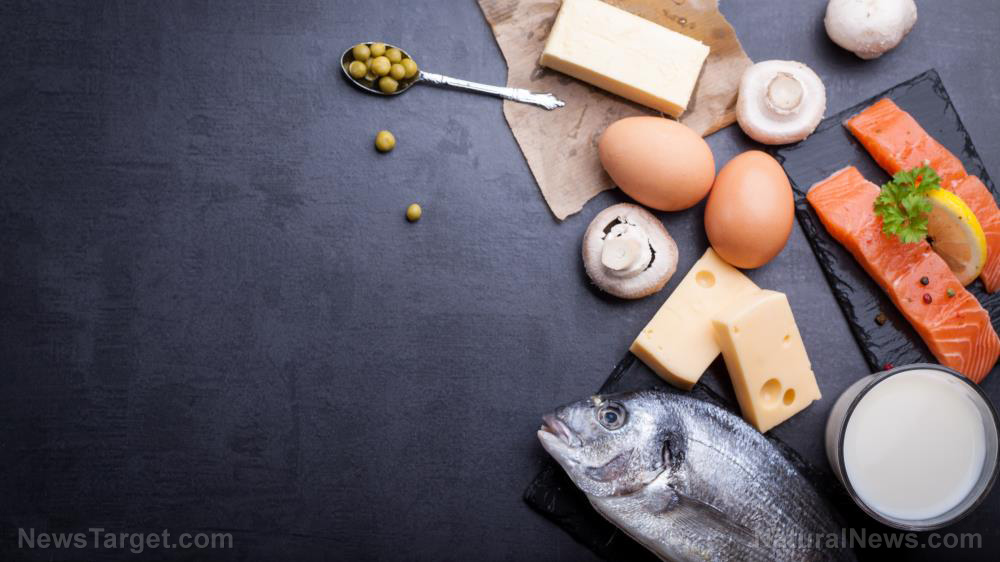Keep your blood sugar levels in check with these natural supplements
09/12/2018 / By Cassie B.

Whether you already have diabetes or you’re concerned about developing this disturbingly common condition, you are likely focusing on keeping your blood sugar levels under control. Here is a look at some supplements that can help you control your blood sugar levels naturally and hopefully avoid the need for dangerous diabetes medications.
Curcumin
The active ingredient in the vibrant orange-yellow turmeric root, curcumin, can reduce your glucose levels, and studies have even found that it can prevent pre-diabetics from going on to develop diabetes. In fact, a placebo-controlled, double-blinded, randomized study carried out by scientists in Thailand found that nobody with pre-diabetes who took turmeric extract went on to develop type 2 diabetes, whereas 16.4 percent of the control group did end up developing the deadly disease.
Ginseng
Ginseng has been shown to have a beneficial effect on blood sugar control and diabetes. However, it’s important to keep in mind that there are three different varieties of ginseng, and some work better for controlling blood sugar than others. American ginseng appears to be the best choice when it comes to decreasing postprandial glucose levels. Studies have shown that taking 3 grams of it up to two hours before meals can be beneficial. They’ve also found that you can reduce your fasting blood glucose by taking 100 to 200 mg of it daily over eight weeks. Siberian ginseng can also help reduce glucose levels to some extent.
Berberine
One natural treatment that can help diabetics that doesn’t get a lot of attention is berberine, which is unfortunate because some research has shown that it can be just as effective as the commonly prescribed diabetes medication Metformin. Found in the stems and roots of barberry, goldenseal, Oregon grape and tree turmeric, it’s a popular ingredient in Ayurvedic and Chinese medicine. Studies have shown that twice-daily 500mg doses can reduce fasting and postprandial glucose in type 2 diabetics.
Fenugreek
The aromatic herb fenugreek is a popular immunity booster with a slightly sweet taste that is reminiscent of maple syrup. However, it has also long been a natural treatment for diabetes in some parts of Asia, Africa and Europe. Studies have shown that it can improve blood glucose levels when taken in amounts ranging from 5 to 50 g per day. The seeds can also be ground up into a flour that can be easily incorporated into food.
Psyllium
If you’ve ever cooked for someone who can’t eat gluten, you’re probably already familiar with psyllium. Available in husks, granules, powders, and capsules, it is sometimes used to increase the fiber of baked goods. However, because It doesn’t digest fully, it can help lower glucose levels and improve digestive function. Studies have shown that it can help patients with type 1 and type 2 diabetes alike, reducing their postprandial glucose levels by up to 20 percent. The dosage needed will vary depending on the delivery format, but it’s always important to take psyllium with a glass of water.
Magnesium
This essential mineral impacts more than 300 of your body’s cellular reactions, and lowering fasting insulin and reducing the risk of diabetes are among its many benefits. Studies have shown that taking 100 milligrams of it each day can help, while doses of as much as 300 mg are considered safe. You can also find it in foods like dark chocolate, broccoli, almonds, leafy greens, and other seeds. One meta-analysis found that magnesium intake is significantly inversely associated with type 2 diabetes; its benefits increase with higher doses. It can also help with constipation, muscle cramps, stress and sleep.
Some of the other natural options worth exploring include cinnamon, white mulberry, milk thistle, inulin, and vitamin D3. In fact, there are so many natural supplements that can help control blood sugar that it may be possible for countless people to avoid the need for medication or possibly even avoid developing diabetes in the first place.
Sources for this article include:
Submit a correction >>
Tagged Under:
American ginseng, berberine, blood sugar, curcumin, fenugreek, ginseng, herbal medicine, Herbs, Magnesium, natural diabetes treatment, natural medicine, natural supplements, nutrients, prevent diabetes, prevention, psyllium, supplements, turmeric, Type 2 Diabetes
This article may contain statements that reflect the opinion of the author
RECENT NEWS & ARTICLES
COPYRIGHT © 2017 SUPPLEMENTS REPORT





















